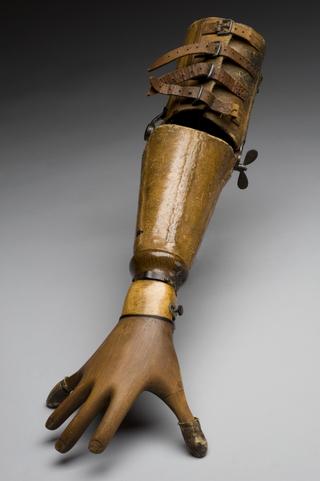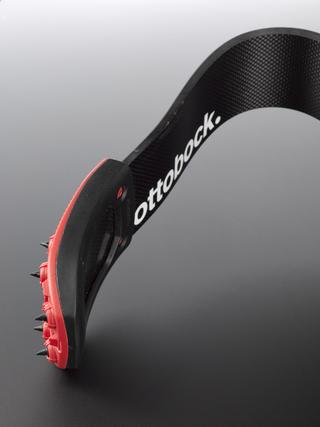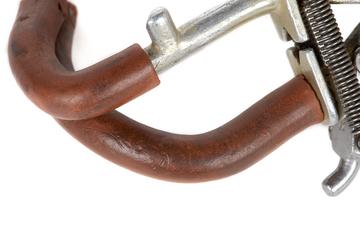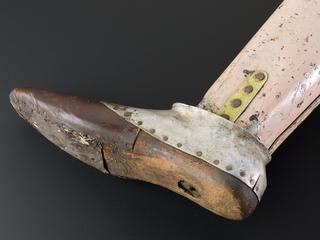












Doll, ceramic infant doll, encased within a full body-length, supported plaster cast, probably used to demonstrate to child patients their prospective treatment for scoliosis, polio or skeletal TB with accompanying large and small descriptive labels, from the Lord Mayor Treloar Orthopaedic Hospital, Alton, Hampshire, England, 1930-1950
How would you explain to a very young patient the sort of medical treatment they are going to be given? Especially if their treatment involves being held rigid by a splint, encased in a body length plaster cast or even placed in an iron lung – perhaps for weeks on end.
For much of its 90-year history, the Lord Mayor Treloar Hospital in Hampshire specialised in the treatment of children affected by tuberculosis and polio. What were the physical effects of these diseases? Tuberculosis could infect the bones, particularly the spine and joints, causing severe disabilities. Likewise, polio might leave arms, legs and bodies twisted and weakened, and sometimes paralysed. Long spells in an iron lung might be necessary if the disease affected the muscles of breathing.
Being in hospital was frightening, and many children found it difficult to understand what was happening to their bodies. What could you do to explain their conditions, and to reassure both children and their worried parents that the treatments could help them?
Staff at the hospital used these everyday-looking toys to prepare and encourage children and their families. The dolls helped to personalise the process. They were dressed in hospital clothes, some accompanied by their teddy bears, and in beds made with hospital sheets and blankets. One was even cocooned in a tiny iron lung. These mini-patients were an attempt to create reassurance in the face of quite drastic and sometimes painful treatments.
Details
- Category:
- Orthopaedics
- Object Number:
- 2002-360
- Materials:
- wood (unidentified), textile, ceramic (unspecified), paper (fibre product), possibly papier-mâché and plaster of Paris
- Measurements:
-
overall: 115 mm x 245 mm x 105 mm, .34 kg
- type:
- teaching doll
- credit:
- North Hampshire Hospitals NHS Trust




